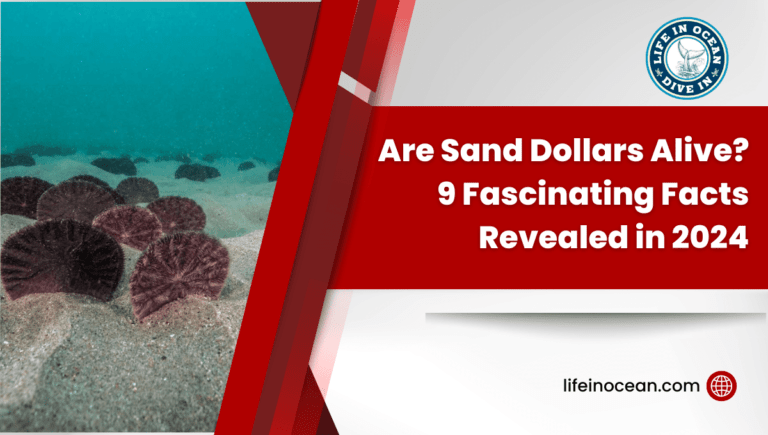Decomposers in the ocean, such as zooplankton and algae, play a crucial role in underwater ecosystems like coral reefs. These decomposer species, such as bacteria and fungi, break down organic material into smaller particles, aiding in the recycling of nutrients in the food web. Additionally, algae and microscopic animals also play a role in this process. By feeding on dead plants and animals, decomposer organisms help to break down and recycle different parts of the marine food chain in underwater ecosystems.
They play a crucial role in breaking down organic waste and maintaining the balance of these ecosystems. Understanding the complex process of ocean decomposition, which involves decomposer organisms and decomposer species, is crucial for comprehending how life thrives in this unique environment. Marine worms and algae play important roles in this process. Through their enzymatic activities, marine fungi, along with decomposers, contribute to nutrient cycling and maintain a delicate balance in the marine environment. This is crucial for the well-being of mollusks and crustaceans in the underwater world.
Table of Contents
Ocean Decomposers Defined
Ocean decomposers, such as mollusks, sea slugs, and crustaceans, play a crucial role in the marine ecosystem by breaking down dead organic matter into particles and recycling nutrients back into the environment. These sea slugs and crustaceans are like nature’s recyclers, ensuring that nothing goes to waste in the ocean. They feed on organic particles and marine fungi, playing a crucial role in maintaining the ecosystem.
Bacteria and marine fungi are the primary decomposers in the ocean, breaking down organic particles in the sea. Marine fungi are microscopic organisms found in the sea that break down complex organic compounds into simpler forms, such as carbon dioxide and water. Bacteria and marine fungi can be found throughout the water column, from surface waters to deep-sea sediments, where they actively participate in the decomposition processes of organic particles.
Fungi also contribute to decomposition in the ocean. These sea organisms specialize in breaking down larger organic matter like dead plants and animals in the sea. Fungi release enzymes that help break down complex molecules, such as organic particles, into smaller components, making them more accessible for other decomposers to process in the sea.
Scavengers, such as crabs and lobsters, also play a role in ocean decomposition by breaking down organic particles. These creatures feed on dead animals or plant material that sinks to the seafloor. By consuming and fragmenting these remains, scavengers speed up the decomposition process and facilitate nutrient cycling.

The activities of ocean decomposers are vital for maintaining a healthy marine ecosystem. By breaking down organic matter, they release essential nutrients back into the water, which can then be used by other organisms for growth and survival. Without decomposers, dead matter would accumulate and hinder nutrient availability for other marine life.
Top Marine Decomposers
Bacteria and fungi play crucial roles as marine decomposers in the ocean. These tiny organisms break down organic matter, recycling nutrients and maintaining the balance of marine ecosystems. Scavengers like crabs and lobsters assist in decomposing larger carcasses.
Bacteria: The Unsung Heroes
Bacteria are incredibly abundant and efficient decomposers in the ocean. They can be found throughout the water column, from surface waters to the deep sea. These microscopic organisms specialize in breaking down various organic compounds, such as dead marine life, phytoplankton, and other organic detritus.
Fungi: Nature’s Recyclers
Fungi also contribute significantly to decomposition in marine ecosystems. They are particularly adept at breaking down complex organic materials like wood and plant debris that enter the ocean through rivers or storms. Fungi play a vital role in nutrient cycling by converting these materials into simpler forms that can be utilized by other organisms.
Scavengers: Cleaning Up the Ocean Floor
In addition to bacteria and fungi, scavengers are essential players in marine decomposition. Crabs, lobsters, and other scavenging crustaceans help break down larger carcasses that sink to the ocean floor. By feeding on decaying matter, they speed up the decomposition process and prevent potential buildup of organic material.
Marine ecosystems rely on these decomposers to recycle nutrients back into the food chain. Without them, dead organisms would accumulate on the seafloor or float indefinitely on the surface. The work of bacteria, fungi, and scavengers ensures a continuous cycle of life and death in our oceans.
Decomposition and the Ocean Food Chain
Decomposition plays a crucial role in the intricate web of life that exists within our oceans. It is an essential process that helps maintain the balance of nutrients and energy flow throughout the ocean food chain.
Nutrient Cycling and Release
When organisms in the ocean die, their remains sink to the seafloor, becoming detritus. This organic matter provides a valuable source of nutrients for other marine organisms. Decomposers, such as bacteria and fungi, break down these dead organisms into simpler compounds, releasing vital nutrients back into the water.
Fueling Life in the Ocean
The released nutrients from decomposition serve as nourishment for primary producers like phytoplankton and algae. These microscopic organisms form the foundation of the ocean food web by converting sunlight and nutrients into organic particles through photosynthesis.
Sustaining Marine Life
As primary producers thrive on these nutrients, they become a source of sustenance for larger organisms such as zooplankton, small fish, and other marine creatures. The energy derived from decomposition fuels their growth and reproduction.
Disruption without Decomposition
Without decomposers breaking down dead organic matter, it would accumulate on the ocean floor, disrupting nutrient cycling within the ecosystem. This accumulation could lead to oxygen depletion in deeper waters due to microbial respiration processes.
Bacteria’s Role in Nutrient Cycling
Bacteria play a crucial role in the ocean ecosystem, particularly. These tiny organisms have the incredible ability to break down organic matter into simpler compounds through enzymatic processes. By doing so, they convert complex molecules into forms that can be utilized by other organisms.
One of the primary ways bacteria contribute to nutrient cycling in the ocean is through their decomposition activities. When dead plants and animals sink to the bottom of the ocean, bacteria get to work breaking them down. This process releases vital nutrients such as carbon and nitrogen back into the water column.
In particular, chemosynthetic bacteria are key players in this nutrient-recycling process. They use chemical reactions instead of sunlight to produce energy and obtain nutrients from their surroundings. Chemosynthetic bacteria are often found near hydrothermal vents or cold seeps where unique chemical conditions exist.
The breakdown of organic matter by bacteria not only releases nutrients but also helps regulate important biogeochemical cycles within the ocean ecosystem. For example, nitrogen is an essential nutrient for marine life, but it exists in various forms that are not readily accessible for uptake by organisms. Bacteria play a critical role in converting nitrogen compounds into usable forms through processes like nitrification and denitrification.
Similarly, phosphorus is another vital nutrient for marine organisms, and bacterial activity aids in its cycling as well. Bacteria can break down organic phosphorus compounds and release soluble phosphate ions into the water, making them available for uptake by other organisms.
The Significance of Fungi in Marine Ecosystems
Fungi play a crucial role in marine ecosystems, particularly. These organisms release enzymes that break down complex organic compounds into simpler forms, aiding in nutrient recycling within coastal ecosystems.
Decomposing Tough Materials
Marine fungi possess the remarkable ability to decompose challenging substances such as wood and plant debris found in the ocean. Unlike bacteria, which primarily target softer organic matter, fungi excel at breaking down tougher materials that would otherwise persist in the environment. This decomposition process is essential for maintaining a healthy balance within marine ecosystems.
Enzymatic Breakdown
Fungi release enzymes that facilitate the breakdown of complex organic compounds. These enzymes act as catalysts, speeding up chemical reactions and transforming intricate molecules into simpler forms that can be readily absorbed by other organisms. By breaking down these compounds, fungi contribute to the overall nutrient availability in marine environments.
Nutrient Recycling
The decomposition activities carried out by marine fungi are vital for nutrient recycling within coastal ecosystems. As they break down organic matter, fungi release essential nutrients back into the ecosystem, making them available for other organisms to utilize. This process ensures a continuous cycle of nutrients, supporting the growth and survival of various marine life forms.
Scavengers vs. True Decomposers
Scavengers and true decomposers are two distinct groups of organisms that play crucial roles in the ocean ecosystem. Scavengers, such as worms and crabs, directly consume dead organisms, while true decomposers break them down externally through enzymatic processes.
Scavengers serve an important function by swiftly removing large carcasses from the environment. They act as nature’s cleanup crew, preventing the accumulation of decaying matter that could lead to pollution or disease. These scavenging organisms help maintain a healthy balance in the ocean by recycling nutrients back into the ecosystem.
On the other hand, true decomposers focus on breaking down smaller organic matter. They secrete enzymes that break down complex molecules into simpler forms, making them accessible to other organisms for consumption. These decomposers include bacteria and fungi, which play a vital role in nutrient cycling within marine ecosystems.

While scavengers primarily target larger dead organisms like fish or marine mammals, true decomposers work on a microscopic level, breaking down detritus and organic material that would otherwise accumulate over time. This process ensures that nutrients are continually recycled and made available to producers—organisms like algae and phytoplankton—throughout the food chain.
Variations Among Regional Decomposers
Different regions of the ocean boast unique sets of decomposers, and this diversity can be attributed to the varying environmental conditions found in each area. Factors such as temperature, salinity, and nutrient availability play a crucial role in influencing the types of decomposers present within different habitats. These regional variations in decomposer communities have significant implications for decomposition rates and nutrient cycling.
Environmental Influence on Decomposer Species
Temperature is a key environmental factor that affects the distribution and abundance of decomposers. In colder regions, such as polar waters, specialized decomposer species have adapted to thrive in low temperatures. Conversely, warmer tropical waters host different decomposer species that are well-suited to higher temperatures.
Salinity levels also impact the composition of decomposer communities. Areas with high salinity, such as salt marshes or estuaries, support unique populations of decomposers adapted to these saline conditions. Similarly, areas with lower salinity levels will have their own distinct set of decomposers.
The availability of nutrients further shapes regional variations among decomposer communities. Nutrient-rich areas like upwelling zones or coastal regions often support diverse and abundant populations of decomposers due to ample food sources.
Implications for Decomposition Rates and Nutrient Cycling
The variations among regional decomposer communities directly influence decomposition rates in different parts of the ocean. Areas with a higher diversity and abundance of efficient decomposers tend to experience faster decomposition processes compared to regions with fewer or less efficient decomposition organisms.
Moreover, nutrient cycling is impacted by the activity of these regional decomposers. Efficient decomposition leads to the release of essential nutrients back into the ecosystem, which can then be utilized by other organisms for growth and reproduction. The presence or absence of specific types of decomposers can affect nutrient availability within an ecosystem.
Unique Adaptations of Ocean Decomposers
Ocean decomposers, such as bacteria, fungi, and scavengers, have developed unique adaptations that allow them to thrive in underwater ecosystems and effectively break down organic matter on the ocean floor. These adaptations enable them to survive extreme conditions and efficiently carry out their vital role in the ecosystem.
Bacteria: Survivors of Extreme Conditions
Some bacteria have remarkable abilities to survive in harsh environments found in the depths of the ocean. They can withstand high pressure and low oxygen levels, making them resilient decomposers. These bacteria play a crucial role in breaking down dead organisms and recycling nutrients back into the ecosystem.
Fungi: Masters of Organic Matter Breakdown
Fungi possess specialized structures called hyphae that aid in breaking down organic matter. These thread-like structures extend into their surroundings, allowing them to access nutrients from decaying material like fallen leaves or dead animals. By decomposing organic matter, fungi contribute to nutrient cycling in marine ecosystems.
Scavengers: Efficient Feeding Machines
Scavengers in the ocean have evolved various adaptations for efficient feeding. Mollusks like sea slugs and echinoderms such as sea urchins possess powerful jaws or specialized mouthparts that help them consume decaying matter effectively. Crustaceans like crabs have strong claws for breaking apart carcasses or shells to access nutritious content inside. Scavengers are essential contributors to decomposition processes by consuming larger pieces of organic material.
From coral reefs to intertidal rocks and rock pools, these unique adaptations can be observed across a wide range of underwater habitats. For example, microscopic animals like Christmas tree worms play a role in breaking down dead coral tissue on reefs while brittle stars scavenge on detritus found in shallower waters.
Human Impacts on Marine Decomposition
Human activities can have significant impacts on the delicate balance of marine decomposition processes. Pollution, overfishing, and habitat destruction are some of the key factors that disrupt these essential ecological functions in the ocean.
Chemical contaminants present in the marine environment can inhibit the activity of decomposer organisms. These contaminants may come from various sources such as industrial waste, agricultural runoff, or oil spills. When decomposers are exposed to high levels of these chemicals, their ability to break down dead organisms and organic waste is compromised.
The alteration of decomposition rates due to human impacts can have cascading effects on the entire marine ecosystem. Decomposition plays a crucial role in recycling nutrients and returning them to the food web. When decomposition is disrupted or slowed down, organic matter accumulates and depletes oxygen levels in shallow waters where many organisms reside.
This disruption can lead to hypoxic (low oxygen) conditions, which are harmful to fish and other marine life. Altered decomposition rates can affect nutrient availability for primary producers like phytoplankton, which form the base of the marine food chain.
Final Words on Decomposers in The Ocean
In conclusion, ocean decomposers play a vital role in maintaining the health and balance of marine ecosystems. From bacteria to fungi, these organisms break down organic matter, recycling nutrients and sustaining the ocean food chain. They are the unsung heroes of the underwater world, silently working to ensure the survival of countless species.

Understanding the importance of ocean decomposers can inspire us to take action to preserve and protect these delicate ecosystems. By reducing pollution, practicing sustainable fishing methods, and supporting conservation efforts, we can contribute to the well-being of marine decomposers and their habitats. Remember, every small step counts in safeguarding the intricate web of life beneath the waves.
So, let’s dive deeper into this fascinating world and continue to learn about and appreciate the incredible work of ocean decomposers. Together, we can make a difference and ensure a thriving future for our oceans.
FAQs
What are decomposers in the ocean?
Decomposers in the ocean are organisms that break down dead organic matter, such as dead plants and animals, into simpler substances. They play a crucial role in recycling nutrients and maintaining the balance of marine ecosystems.
Why are decomposers important in the ocean?
Decomposers are important in the ocean because they help recycle nutrients back into the ecosystem. By breaking down dead organisms, they release essential elements like carbon, nitrogen, and phosphorus back into the water, making them available for other organisms to use.
What types of decomposers exist in the ocean?
In the ocean, there are various types of decomposers. Bacteria and fungi are common examples of microscopic decomposers. Larger organisms like worms and crustaceans also contribute to decomposition by feeding on decaying matter.
How do decomposers break down organic matter in the ocean?
Decomposers break down organic matter through a process called decomposition. They secrete enzymes that break down complex molecules into simpler ones that can be absorbed by their cells. This breakdown releases energy and allows them to derive nutrients from decaying material.
Can you give an analogy to understand decomposers’ role better?
Sure! Think of decomposers as nature’s recyclers or garbage collectors in the ocean. Just like how waste management systems collect and process trash to prevent it from piling up, decomposers efficiently break down dead organisms to keep marine ecosystems clean and nutrient-rich.







